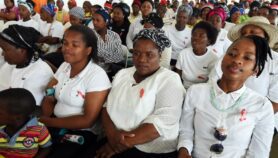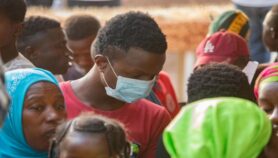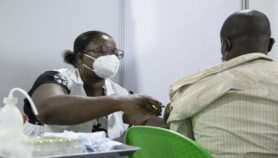By: Talent Ng’andwe
Send to a friend
The details you provide on this page will not be used to send unsolicited email, and will not be sold to a 3rd party. See privacy policy.
[LUSAKA] Traditional healers in Zambia say their remedies should be integrated with modern medicines in the treatment of diseases such as HIV/AIDS, tuberculosis and cancer, according to the president of the Traditional Health Practitioners Association of Zambia, Rodwell Vongo.
Vongo made his comments on 12 November in Lusaka at Zambia’s annual national science forum, for which the theme was ‘science and technology for sustainable development’.
He said traditional medicine has met resistance from policymakers and scientists in Zambia, so traditional healers have resolved to work closely with both groups in a bid to dispel myths about their practices.
"Complex diseases like AIDS, cancer and tuberculosis are multisectoral issues," said Vongo. "Serious collaboration is needed between traditional healers, scientists and policymakers."
The traditional healers intend to lobby policymakers about the need to integrate traditional herbal medicine into Zambia’s health care system. Meanwhile, the association will educate the country’s healers about ethical aspects of disease treatment and hospital referral for cases needing modern medical attention. The association also plans to make herbal medicines available to scientists for safety testing.
Vongo said the government needs to develop a clear policy to guide the use of indigenous knowledge because current policy is unclear. He adds that the legal framework on intellectual property should also be changed as it is currently too expensive to register patents.
Mwananyanda Lewanika, executive director of the National Institute for Scientific and Industrial Research, told SciDev.Net that collaboration between scientists and traditional healers is needed to check the safety and efficacy of herbal medicines, and to prevent people from taking medicines that are not appropriate for their treatment.
Lewanika believes that the government and society should create incentives to protect traditional knowledge and promote innovation.
Most Zambians live on less than US$1 a day and cannot afford Western medicines. Although traditional medicines have played a significant role in management of certain diseases, some associate them with witchcraft.













